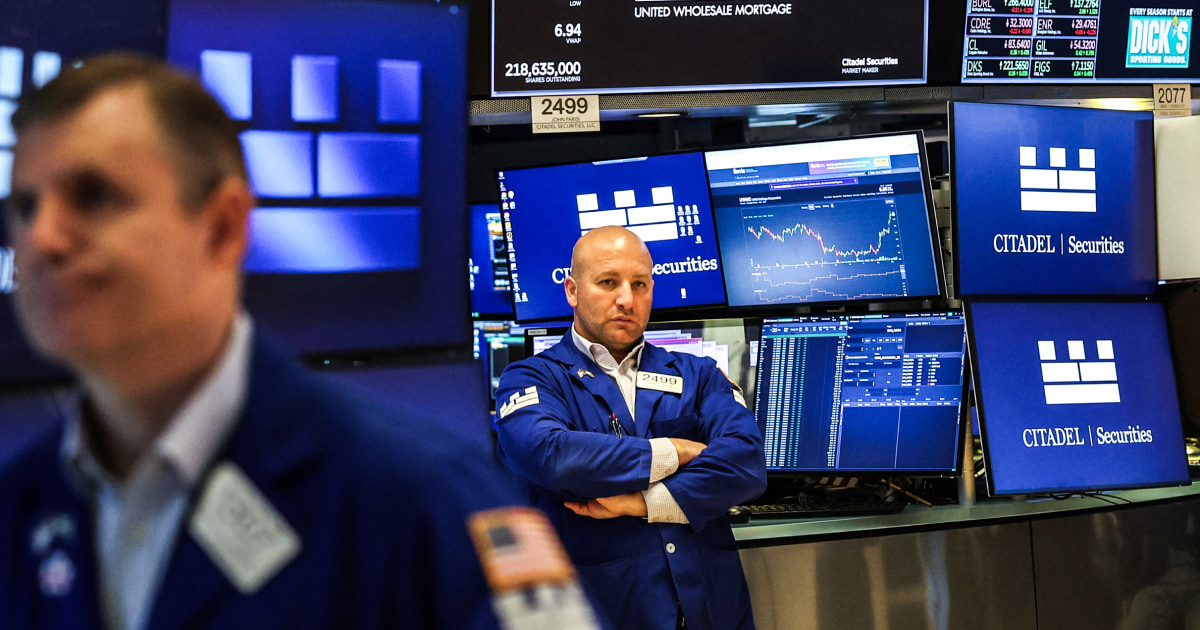Wall Street tacked on more gains as it glided to the finish of its latest record-setting week.
The S&P 500 rose 0.5% Friday. The Dow Jones Industrial Average added 0.4%, and the Nasdaq composite climbed 0.7%. All three indexes hit an all-time high for the second straight day.
FedEx climbed after delivering a stronger profit for the latest quarter than analysts expected. The price of gold continued its sharp rally amid expectations for lower interest rates and worries about higher inflation. Japanese stocks fell after the Bank of Japan said it would reduce its trove of stock funds.
Gold has benefited from expectations for lower interest rates, along with worries about high inflation and the potential that mountains of debt for the U.S. and other governments could make their currencies worth less.
Lennar dropped 4.2% after the homebuilder reported weaker revenue for its latest quarter than analysts expected, even though its profit topped forecasts. Executive Chairman Stuart Miller pointed to “the continued pressures of today’s housing market” and said Lennar had to offer additional incentives to entice customers to buy homes, which dragged down the average sales price.
Easier interest rates could give the struggling housing market a boost, and mortgage rates have already come down in expectation of a rate-cutting campaign by the Fed.
Lower rates could also tamp down widespread criticism that the broad U.S. stock market has become too expensive after prices rose so quickly. But expectations have grown so strong for coming cuts to rates that the stock market may be set for a sharp drop if the Fed does not cut as much as expected.
Fed officials did indicate earlier this week that more cuts to rates may be on the way this year and next. They’re hoping to give support to the job market, which has slowed and made it more difficult for U.S. workers to find new positions.
But Fed Chair Jerome Powell also warned Wednesday that the central bank is in a precarious position and may have to change course quickly. That’s because the economy is in an unusual situation where inflation is remaining stubbornly high at the same time that the job market is slowing. And President Donald Trump’s tariffs are threatening to push inflation higher, at least temporarily.
The Fed is in charge of fixing both high inflation and a weak job market, but it has only one tool to do so. And helping one by moving interest rates often hurts the other in the short term.
Scott Wren, senior global market strategist at Wells Fargo Investment Institute, warns that the stock market could become shakier following its recent glide to records as “the economy slows, tariff impacts arrive piecemeal and political uncertainties continue.”
In stock markets abroad, indexes were mixed across Europe and Asia.
Japan’s Nikkei 225 fell 0.6% after the Bank of Japan said it will sell some of its massive trove of Japanese stock funds. It also held interest rates steady.
Chinese indexes finished mixed ahead of a phone call between Trump and China’s President Xi Jinping that the U.S. president said afterward was productive. The leaders of the world’s two largest economies agreed to meet at a regional summit to take place at the end of October in South Korea.
In the bond market, Treasury yields were relatively stable. The yield on the 10-year Treasury rose to 4.14% from 4.11% late Thursday.

